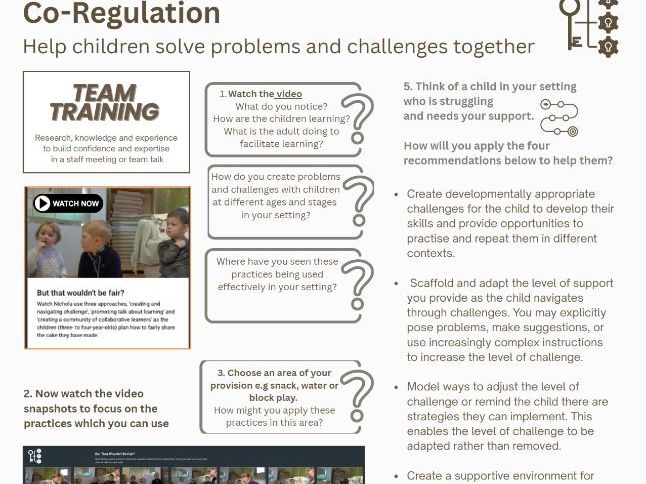Louise Jackson - Active Learning in EYFS
Training guides, resources and tools which can be used to support professional conversations and CPD for early years networks of EYFS teachers and educators. A bank of free training resources with carefully selected links to research and exemplification on TES for schools and early years settings.



